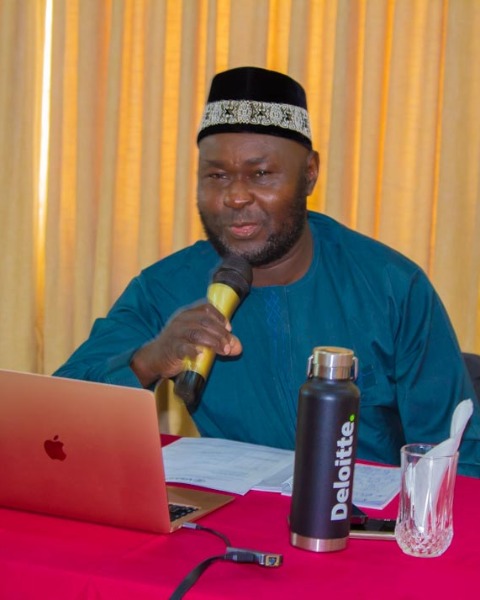Paper
Indigenous Peoples in Evaluation
Applications of Storytelling in Indigenous Evaluation
The Power of Story: How the Story of the Indigenous Mijikenda Kayas in Kenya can be used to influence Evaluation in the Kenyan Context?
Friday, October 13, 2023
3:45 PM - 4:45 PM ET
Location: Grand Ballroom 1

Awuor C. PONGE, PhD (he/him/his)
Associate Fellow
African Policy Centre (APC)
Nairobi, Nairobi Area, Kenya
Presenter(s)
Abstract Information: Storytelling is a fundamental aspect of Indigenous cultures and has been used for thousands of years to convey knowledge, history, and values from one generation to the next. In an Indigenous context, the purpose of storytelling is multi-faceted and serves many functions. The story of the Indigenous Mijikenda Kayas, which are sacred forests of the Mijikenda people in coastal Kenya, can provide insights into how evaluation approaches can be influenced by Indigenous knowledge and practices in the Kenyan context. It illustrates the importance of incorporating Indigenous knowledge and practices into evaluation approaches. The Mijikenda Kayas are managed by community members who have a deep understanding of the forests and their ecological significance. This illustrates the importance of centering community perspectives in evaluation approaches. By involving community members in the evaluation process and valuing their perspectives and knowledge, evaluation approaches can be more accurate, relevant, and respectful. The story of the Mijikenda Kayas also highlights the importance of addressing power dynamics in evaluation approaches. They provide valuable insights into how evaluation approaches can be influenced by Indigenous knowledge and practices in the Kenyan context. Indigenous Evaluation incorporates Indigenous ways of knowing, which means that it takes into account the cultural and historical context of the program or policy being evaluated. This includes incorporating Indigenous languages, stories, and traditional knowledge into the evaluation process, to tell Indigenous stories. Storytelling is an important part of Indigenous cultures and serves many purposes, including transmitting knowledge, preserving language, building relationships, and promoting healing and transformation.
Relevance Statement: Storytelling is a powerful tool for connecting Indigenous peoples with their cultures, histories, and traditions, and for building understanding and relationships with others. Storytelling can shape evaluation methods and support relationality by providing a way for community members to share their experiences and perspectives, creating spaces for engagement and dialogue, providing context and depth to the evaluation process, and encouraging reflexivity and critical reflection. By centering the voices of community members and supporting relationality, storytelling can help to ensure that evaluation processes are respectful, responsive, and effective. Storytelling is an important part of Indigenous cultures, and it can be used as an evaluation method to tell Indigenous stories. This can include using interviews or focus groups to collect stories from Indigenous peoples about their experiences with the program or policy being evaluated. These stories can then be incorporated into the evaluation report to provide a more holistic understanding of the program's impact. By incorporating Indigenous knowledge, centering community perspectives, addressing power dynamics, and promoting sustainability, evaluation approaches can be more culturally responsive, accurate, and effective. Indigenous Evaluation places a strong emphasis on community engagement and involvement in the evaluation process. This means that Indigenous peoples are involved in defining the evaluation questions, designing the evaluation methods, and interpreting the findings. By involving Indigenous peoples in the evaluation process, their stories and perspectives can be incorporated into the evaluation report. Understanding cultural knowledge is critical to developing effective and culturally responsive evaluation approaches. By recognizing and respecting the cultural context of the community or demographic being evaluated, evaluators can develop evaluation questions and methods that are relevant, appropriate, and respectful, and build trust and rapport with community members. This can lead to more accurate, useful, and impactful evaluations that can help to inform policy and program development in culturally responsive ways. Indigenous Evaluation provides a framework for incorporating Indigenous knowledge, values, and worldviews into the evaluation process, which can help to tell Indigenous stories in a more authentic and respectful way.
Relevance Statement: Storytelling is a powerful tool for connecting Indigenous peoples with their cultures, histories, and traditions, and for building understanding and relationships with others. Storytelling can shape evaluation methods and support relationality by providing a way for community members to share their experiences and perspectives, creating spaces for engagement and dialogue, providing context and depth to the evaluation process, and encouraging reflexivity and critical reflection. By centering the voices of community members and supporting relationality, storytelling can help to ensure that evaluation processes are respectful, responsive, and effective. Storytelling is an important part of Indigenous cultures, and it can be used as an evaluation method to tell Indigenous stories. This can include using interviews or focus groups to collect stories from Indigenous peoples about their experiences with the program or policy being evaluated. These stories can then be incorporated into the evaluation report to provide a more holistic understanding of the program's impact. By incorporating Indigenous knowledge, centering community perspectives, addressing power dynamics, and promoting sustainability, evaluation approaches can be more culturally responsive, accurate, and effective. Indigenous Evaluation places a strong emphasis on community engagement and involvement in the evaluation process. This means that Indigenous peoples are involved in defining the evaluation questions, designing the evaluation methods, and interpreting the findings. By involving Indigenous peoples in the evaluation process, their stories and perspectives can be incorporated into the evaluation report. Understanding cultural knowledge is critical to developing effective and culturally responsive evaluation approaches. By recognizing and respecting the cultural context of the community or demographic being evaluated, evaluators can develop evaluation questions and methods that are relevant, appropriate, and respectful, and build trust and rapport with community members. This can lead to more accurate, useful, and impactful evaluations that can help to inform policy and program development in culturally responsive ways. Indigenous Evaluation provides a framework for incorporating Indigenous knowledge, values, and worldviews into the evaluation process, which can help to tell Indigenous stories in a more authentic and respectful way.
